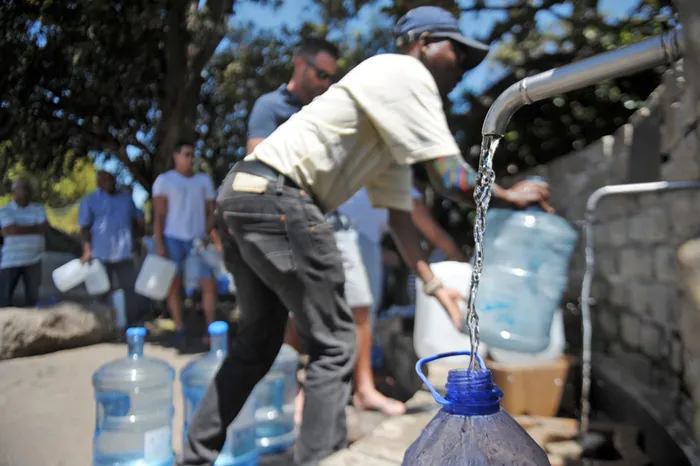The power of pulling together during the water crisis

BRIEFING: JP Smith, Virginia De Azevedo and Christa Hugo BRIEFING: JP Smith, Virginia De Azevedo and Christa Hugo
Many of us have already realised that we need to start reaching out to others rather than compete with each other in order to cope with less water. A crisis can help to strengthen society, so we can use this moment to do just that. As a community, we will also need strong arms, time, DIY, organising skills, and good communication skills to see us through a period of extremely limited water supplies. We all have something to offer. Here’s how to get started:
1. I’ve sorted out all my water needs already, so why should I get involved?
One of the biggest misnomers about this water crisis is that by having high walls and stockpiling resources (be it in the form of bottled water, bigger and bigger rain tanks or a borehole) we will somehow shield ourselves from the turmoil brought on by water scarcity. These resources alone won’t get us through the crisis. We need access to other resources to collectively save as much water as possible and to cope with a situation in which we have to live with extremely limited water supplies.
2. How can I help?
Think about what you might have to offer in terms of helping yourself and others to cope with less water. Perhaps you are able to fix leaks or solve plumbing/ borehole problems; are able to offer transport to alternate sources of water or distribution points; have strong people to help lifting water containers when water’s no longer available on tap; time to organise solutions in the home or school; access to communication groups (e.g. Whatsapp) to coordinate quick responses; or money to donate to people with little or no income who are struggling to fix leaks and save water. Everyone in a community has something to offer and the ability to create a shared solution to the crisis.
3. Who is in my watershed?
If there’s a group that you belong to that would benefit from stronger cooperation around water saving and sharing – now is the time to start the conversation and to connect, coordinate and organise yourselves. All of us belong to many different communities from extended families, to your street, school, church, sports clubs, and virtual communities like Whatsapp groups and Facebook friends. No woman or man is an island (even in a drought!) and it’s important to start talking about this water crisis and how we will cope together.
4. Everyone is really stressed out. How do we stop things from getting out of control?
By now you have probably witnessed some very heated conversations around water – ranging from arguments with naysayers who think it’s all a conspiracy, neighbours who are still watering their gardens with municipal water or arguments about who was first in the queue at your nearest spring. Everybody has their own world view. Your view may differ from that of family members, friends, neighbours or fellow citizens – and that’s okay. The key is to listen to each other rather than withdraw and in that way we may be able to come up with creative, workable solutions we haven’t thought of before. For Love of Water, Let’s Talk is a tool that offers four steps to help you have these difficult conversations.
5. Should we still be talking to the City or should we go it alone?
It is essential that the lines of communication with the City stay open. There are some areas you will have no control over and only the City and its officials will have the answers. This is where ward councillors and ward committees should also be stepping up as the liaison between the local authority and your community. Some groups, such as neighbourhood watches, already have strong relationships with the local authority and the South African Police Services, so it makes sense to task them with keeping these lines of communication open.
6. I’ve got friends up country who have heard about our problem and want to help. Should they be sending us water?
While it has been heart-warming to see how people outside of Cape Town have rallied to offer support by sending 5-litre bottles of donated water to the city, this is not the most efficient response – not to mention all the plastic waste that will be generated. What we need are long-term adjustments to help us out of the water crisis. Out-of-towners might consider other ways of helping – like donating rain water tanks to people who can’t afford them or sponsoring plumbers to stop leaks and to help install greywater systems.
7. Who is up and running already?
There are many groups that have already started to coalesce around the water issue, some using Facebook as a tool to communicate. Examples are the Philippi Horticultural Association, South Peninsula Water, Water Action Cape Town, the Noordhoek Ratepayers Association and the Western Cape Economic Development Partnership. Tips and information are shared in virtual groups like Compost Loo and Watershedding Western Cape.
*Weiss is the media manager at WWF SA